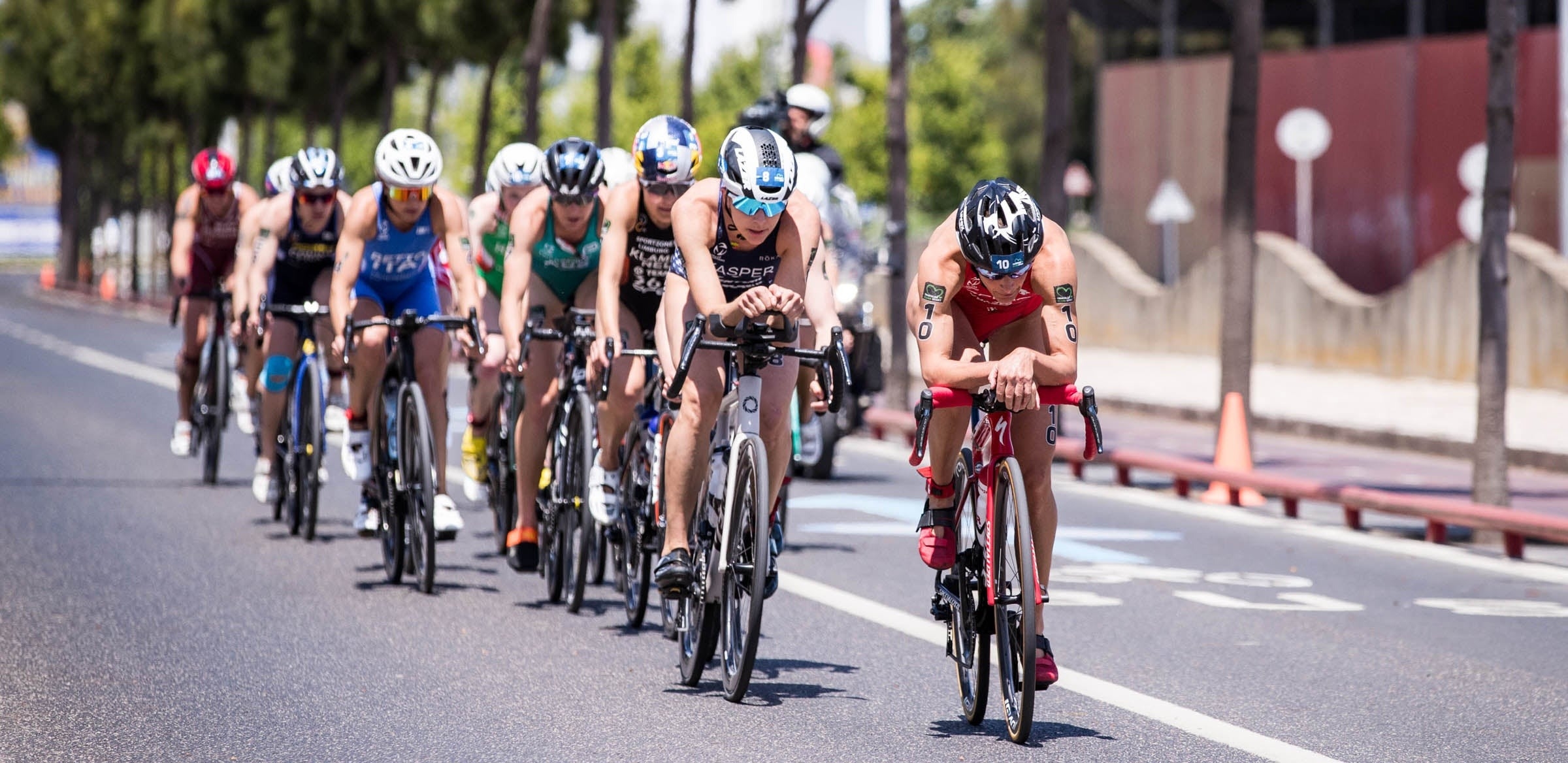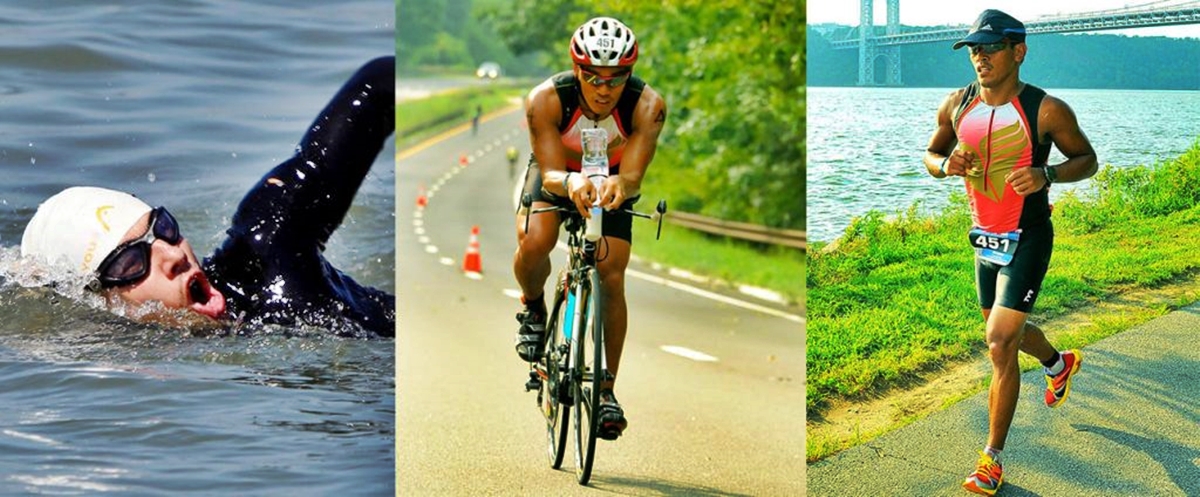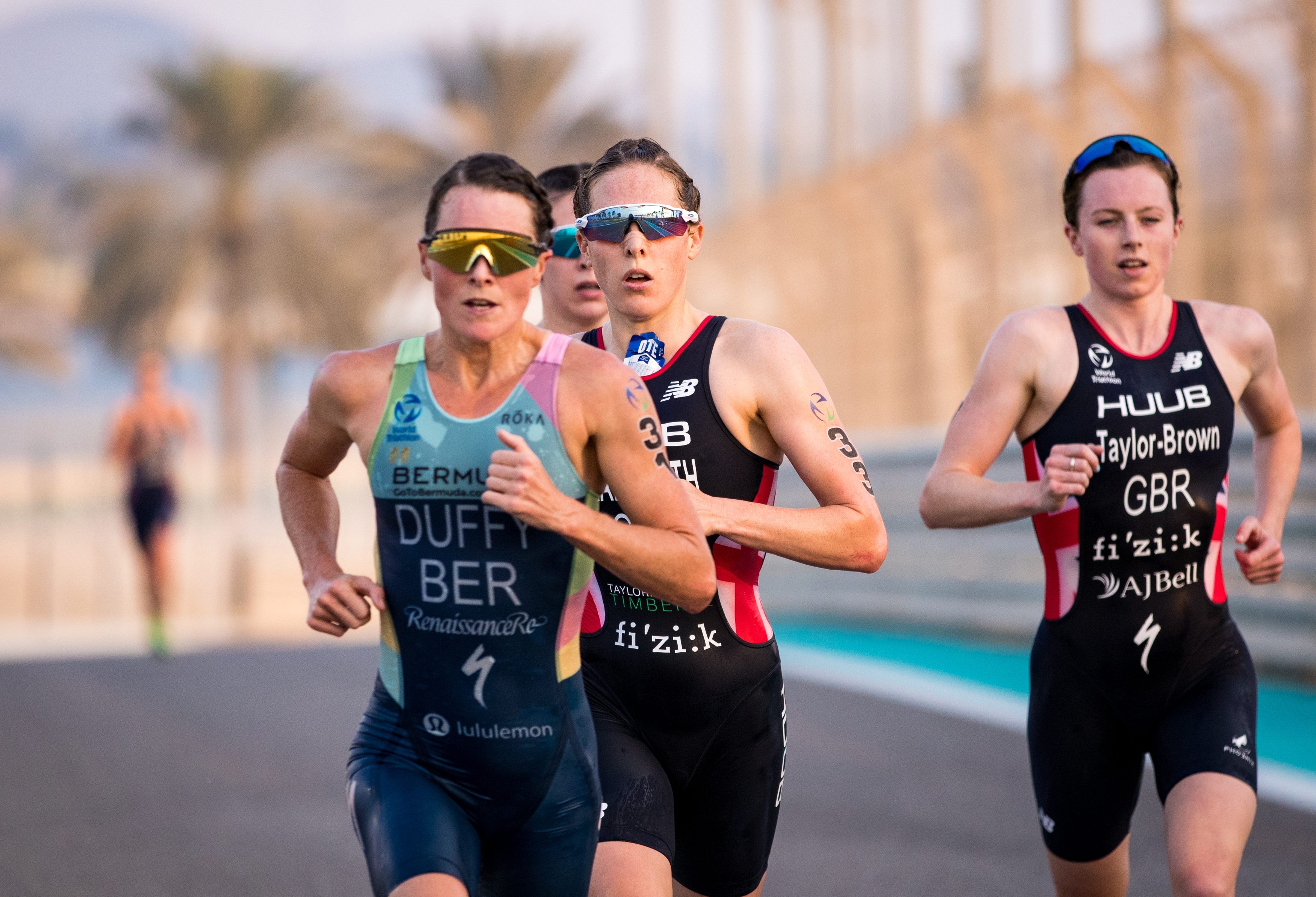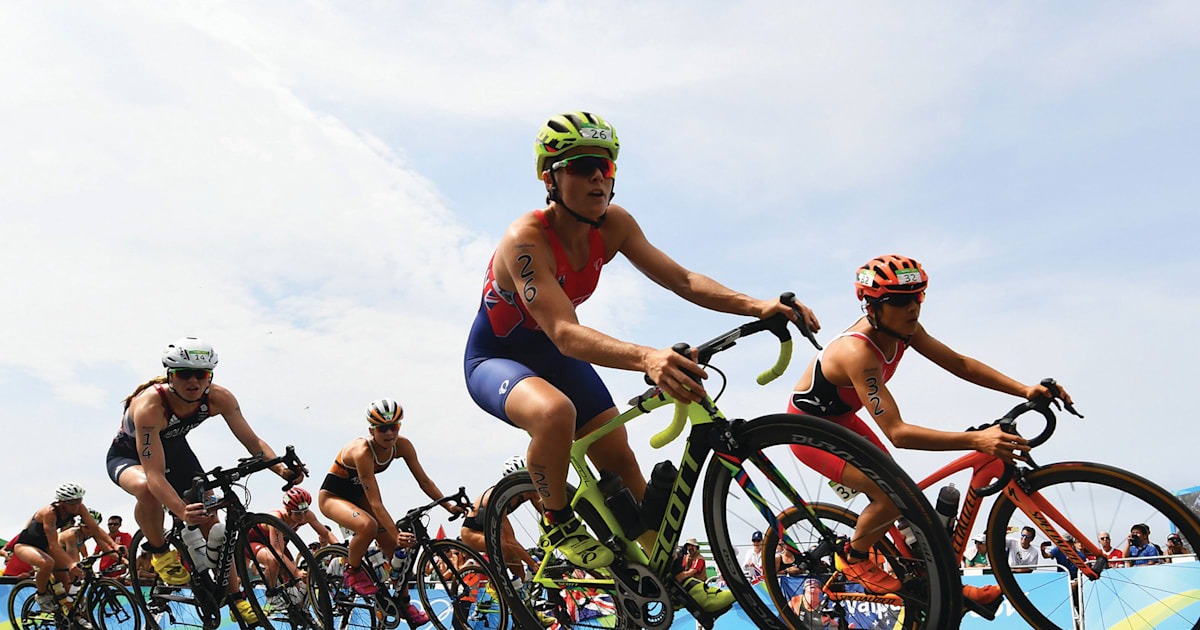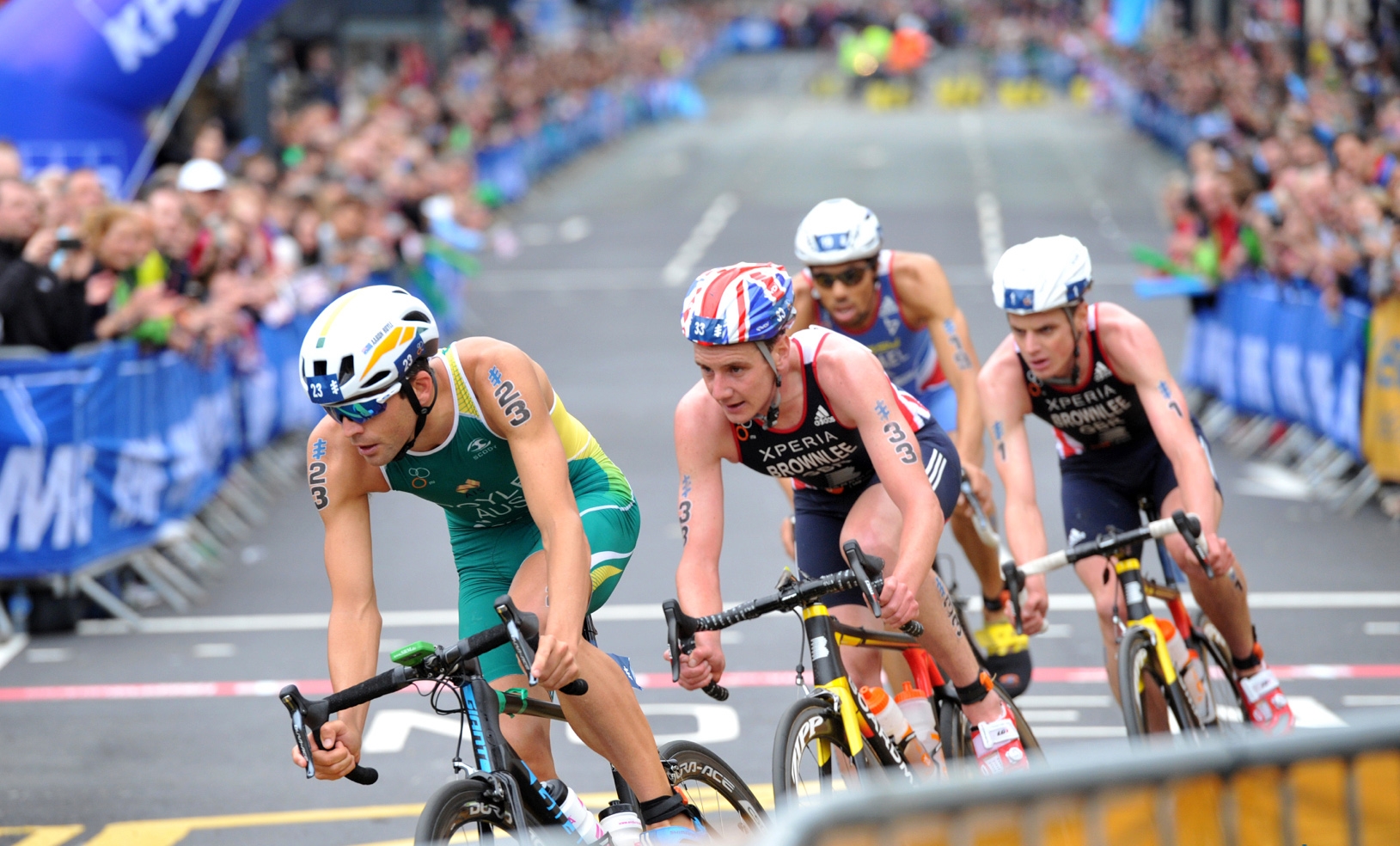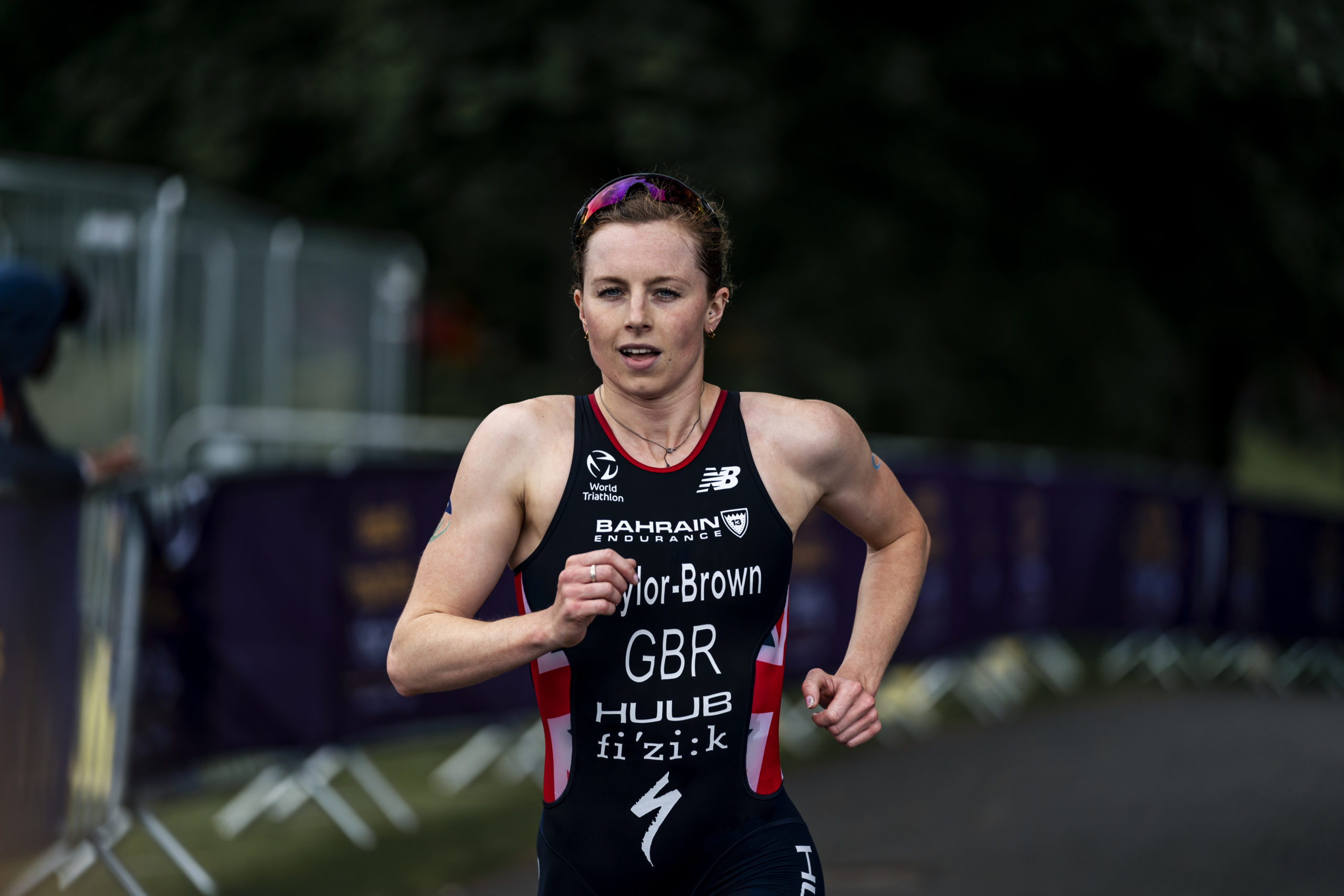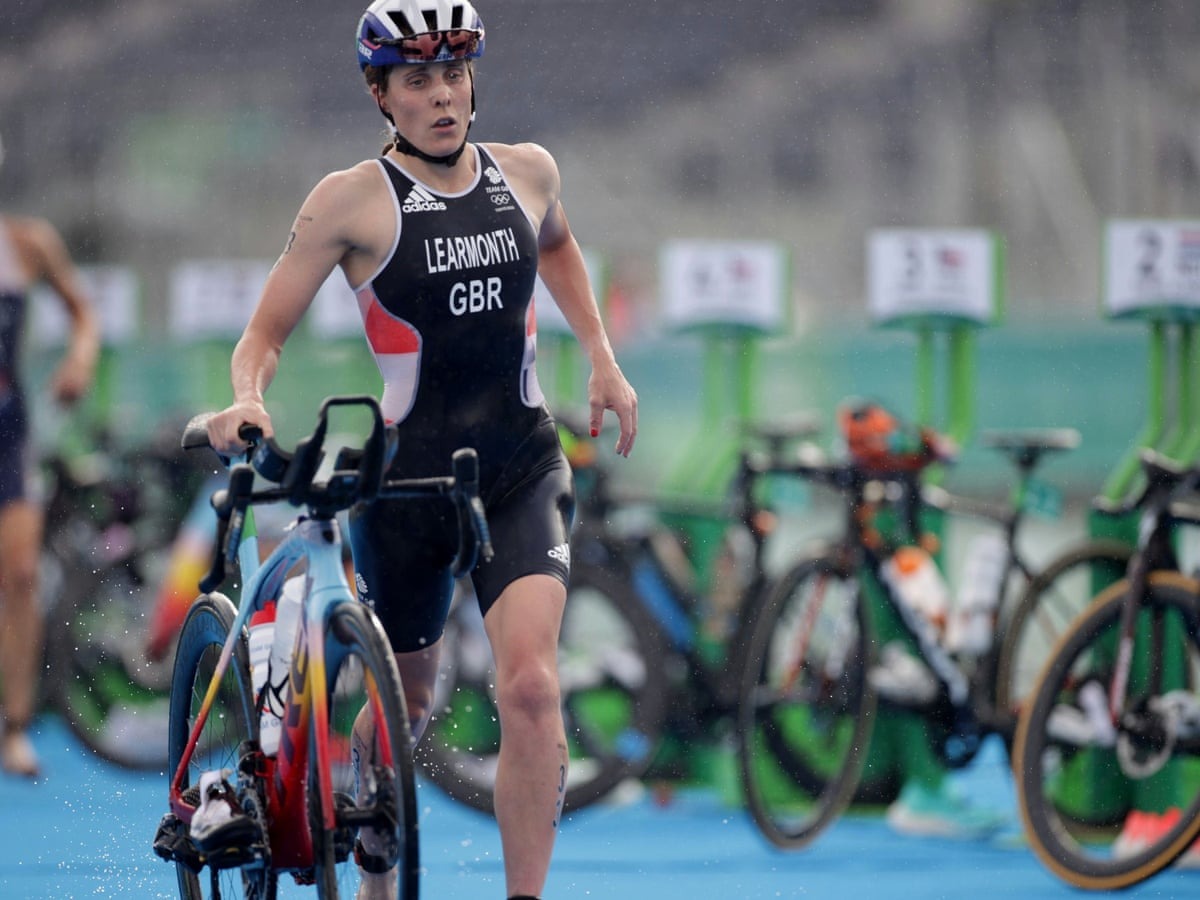Home>Misc>Featured>How Can You Qualify For The Olympics In Triathlon
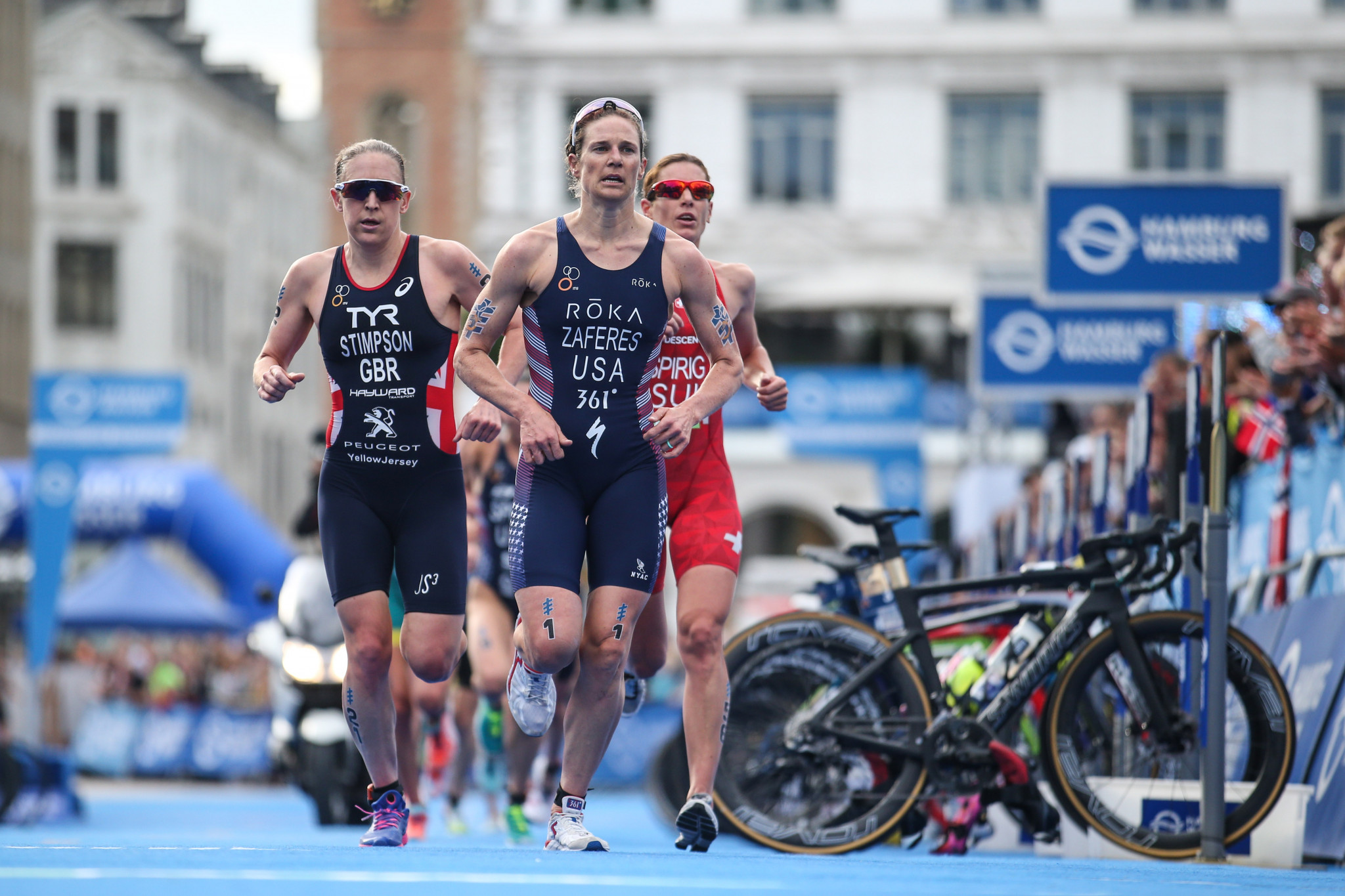

Featured
How Can You Qualify For The Olympics In Triathlon
Modified: January 2, 2024
Discover the steps to qualify for the Olympics in triathlon and learn the essential criteria needed. Get featured in the prestigious sporting event and make your dreams come true.
Introduction
Competing in the Olympic Games is the ultimate dream for many athletes worldwide. It represents the pinnacle of their sport and offers an opportunity to showcase their talent on a global stage. In the discipline of triathlon, athletes undergo a rigorous qualification process to secure their spot at the Olympic Games.
Triathlon, a demanding and exhilarating sport that combines swimming, cycling, and running, requires athletes to excel in all three disciplines. To qualify for the Olympic Games in triathlon, athletes must meet specific criteria and achieve minimum performance standards set by their respective national federations and the International Triathlon Union (ITU).
The qualification process for the Olympic Games in triathlon can be intense and competitive. Athletes must consistently perform at a high level in international competitions to earn points and improve their rankings. The process involves a combination of individual race results, rankings, and national federation selection criteria.
While each country has its own national federation eligibility criteria, the ITU also sets certain requirements that athletes must meet to be eligible for Olympic qualification. These criteria often involve a combination of minimum race times, top finishes in specific events, and the athlete’s ranking in the ITU world standings.
Additionally, the Olympic Games also offer some wild card entries, which are often given to athletes or countries that have shown exceptional potential or have a compelling story that adds value to the event. These wild card entries allow for a more diverse and inclusive representation at the Games.
In this article, we will delve into the various aspects of qualifying for the Olympic Games in triathlon. We will explore the minimum performance standards, the Olympic qualification process, the national federation eligibility criteria, the points system for selection, the importance of competition results and rankings, and the possibility of earning a wild card entry.
So, if you’ve ever wondered how triathletes qualify for the Olympics, join us as we dive into the intricate world of Olympic qualification in triathlon.
Requirements for Qualifying
Qualifying for the Olympics in triathlon requires athletes to meet specific criteria and achieve certain standards set by their national federations and the International Triathlon Union (ITU). These requirements ensure that only the best athletes in the discipline are able to compete at the highest level.
One of the primary requirements for Olympic qualification is achieving minimum performance standards. These standards are determined by the ITU and vary depending on factors such as race distance and the specific event. Athletes are typically required to achieve a certain time in each discipline – swimming, cycling, and running – in order to be eligible for Olympic qualification.
These minimum performance standards are designed to ensure that athletes have the necessary skill and physical capability to compete at the Olympic level. It also helps to level the playing field and maintain a high standard of competition.
In addition to the minimum performance standards, athletes must also participate in a series of qualifying events. These events are typically international triathlon competitions where athletes have the opportunity to earn points and improve their rankings. The ITU organizes a number of qualifying races leading up to the Olympic Games, providing athletes with multiple opportunities to showcase their abilities and earn a spot on the Olympic team.
Furthermore, athletes must meet their respective national federation eligibility criteria. Each country has its own set of criteria that athletes must fulfill to be eligible for Olympic qualification. These criteria may include factors such as citizenship, residency, and membership with the national federation. It ensures that athletes represent their country and have a strong affiliation with their national federation.
To summarize, the requirements for qualifying for the Olympic Games in triathlon include meeting the minimum performance standards set by the ITU, participating in qualifying events to earn points and improve rankings, and fulfilling the eligibility criteria set by their respective national federations. These requirements ensure that only the best athletes, who have demonstrated their skill, dedication, and commitment, have the opportunity to compete on the Olympic stage in the discipline of triathlon.
Achieving Minimum Performance Standards
One of the key requirements for Olympic qualification in triathlon is achieving minimum performance standards. These standards are set by the International Triathlon Union (ITU) and serve as a benchmark to ensure that athletes possess the necessary skills and abilities to compete at the Olympic level.
The minimum performance standards for triathlon vary based on the specific event and race distance. Athletes are typically required to achieve certain times or finishing positions in each discipline – swimming, cycling, and running – to be considered for Olympic qualification. These standards are designed to represent a level of proficiency and competitiveness that is expected at the Olympic Games.
To meet the minimum performance standards, athletes must train meticulously and continuously improve their skills in all three disciplines. They must focus on developing their swimming technique, cycling power and endurance, and running speed and stamina. This requires a combination of regular practice sessions, strength training, and race simulations to ensure that they can consistently perform at the required standard.
Coaches play a crucial role in assisting athletes in achieving these standards. They develop training plans, provide guidance on technique and strategy, and closely monitor the progress of their athletes. Coaches also help athletes identify areas for improvement and implement targeted training methods to enhance their performance.
Moreover, athletes often compete in high-level triathlon races to gauge their performance against the best in the sport. These races not only provide valuable racing experience but also serve as an opportunity to meet the minimum performance standards. Athletes who consistently achieve top finishes in these races are more likely to fulfill the requirements for Olympic qualification.
It is important to note that meeting the minimum performance standards does not guarantee automatic qualification for the Olympic Games. While it is a crucial requirement, athletes must also consider factors such as competition results, rankings, and national federation eligibility criteria to secure their spot on the Olympic team.
To summarize, achieving minimum performance standards is an essential step in the qualification process for the Olympic Games in triathlon. Athletes must focus on improving their swimming, cycling, and running abilities to meet these standards, with the guidance of their coaches. While meeting these standards is important, athletes must also consider other factors in the qualification process to secure their place at the Olympics.
Olympic Qualification Process
The Olympic qualification process for triathlon is a multi-faceted and competitive journey that spans several years leading up to the Olympic Games. It involves a combination of individual race results, rankings, and national federation selection criteria to determine which athletes earn the coveted spots on their respective national teams.
The process begins with a series of qualifying events sanctioned by the International Triathlon Union (ITU). These events provide athletes with the opportunity to earn points based on their performance. The ITU maintains a points system where athletes accumulate points based on their finishing positions in these races. The points system takes into account the strength of the field in each race, ensuring that athletes are rewarded for competing against tough competition.
In addition to the points system, the ITU also considers an athlete’s world ranking. The rankings take into account an athlete’s performance in specific races over a designated period of time. Athletes who achieve consistently high rankings have a greater chance of earning Olympic qualification.
While the points system and rankings play a significant role, each country’s national federation has its own set of eligibility criteria and selection process. National federations may consider factors such as an athlete’s past performance, consistency, and potential for success at the Olympic Games. They may also consider their overall team strategy and contribution to the sport when making their selections.
It’s important to note that the number of available Olympic spots for each country is limited. The allocation of these spots is based on factors such as the country’s historical performance in the sport and their overall representation in the international triathlon community. As a result, even if an athlete meets the qualification criteria, they may not secure a spot if their country has already reached its maximum quota.
The Olympic qualification process culminates with the official announcement of the selected athletes by their respective national federations. Once selected, athletes undergo intense preparations for the Games, including fine-tuning their training, focusing on race strategies, and optimizing their overall fitness and performance.
In summary, the Olympic qualification process in triathlon combines individual race results, rankings, and national federation selection criteria. Athletes earn points based on their performance in qualifying events, their world rankings are considered, and their respective national federations make the final decision on team selection. It is a complex and competitive process that culminates in the announcement of the athletes who will represent their countries at the Olympic Games.
National Federation Eligibility Criteria
Alongside the International Triathlon Union (ITU) requirements, each country’s national federation sets its own eligibility criteria for athletes aiming to qualify for the Olympic Games in triathlon. These criteria are designed to ensure that athletes have a strong connection to their respective countries and align with the national federation’s values and goals.
The national federation eligibility criteria may include factors such as citizenship, residency, and membership with the national federation. Typically, athletes must hold citizenship of the country they wish to represent, which ensures that they have a genuine affiliation and connection to that nation. Some countries may also require athletes to meet residency requirements, demonstrating their commitment and contribution to the national triathlon community.
In addition to citizenship and residency, athletes are often required to be members of their national federation. This membership signifies their commitment to the sport and their willingness to be a part of the national team. National federations may also consider an athlete’s past performances, consistency, and potential for success in determining their eligibility for Olympic qualification.
It’s worth noting that the national federation eligibility criteria can vary from country to country. The specific requirements are determined by each national federation and are often influenced by factors such as the country’s overall goals and strategies in triathlon. Some countries may have more stringent criteria to maintain a high level of competitiveness, while others may focus on inclusivity and providing opportunities for emerging talent.
The national federation’s selection committee or panel is responsible for reviewing the eligibility criteria and making the final decision on the athletes who will represent the country at the Olympic Games. They consider factors such as the athlete’s performance in qualifying events, their rankings, and their ability to contribute to the success of the national team.
In summary, national federation eligibility criteria play a vital role in the Olympic qualification process for triathlon. These criteria take into account factors such as citizenship, residency, and membership with the national federation. They ensure that athletes have a genuine connection to their country and align with the national federation’s values and goals. The criteria are determined by each national federation and are crucial in determining which athletes will represent their country at the Olympic Games.
Points System for Selection
The points system is an integral part of the selection process for Olympic qualification in triathlon. It is implemented by the International Triathlon Union (ITU) to objectively assess the performance and competitiveness of athletes in qualifying events.
The ITU’s points system is designed to reward athletes based on their finishing positions in races. The higher an athlete finishes in a race, the more points they earn. However, the number of points awarded also depends on the strength of the field. This ensures that athletes who compete in highly competitive races against top-ranked opponents have the opportunity to earn more points.
The points earned by athletes in each race are accumulated over a designated period leading up to the Olympic Games. This period often spans several years, giving athletes multiple opportunities to compete and improve their rankings.
The rankings are used as a means to allocate Olympic qualification spots. Higher-ranked athletes have a better chance of securing their place at the Games, as the top-ranked athletes from each country are usually given preference for qualification. However, it’s important to note that there are maximum quotas per country, so even highly ranked athletes may not qualify if their country has reached its quota.
The points system also brings objectivity to the selection process. It allows national federations to compare the performances of their athletes against those of athletes from other countries. This creates a fair and transparent process where athletes are selected based on their ability to consistently perform at a high level in international competitions.
The points system not only rewards individual race performances but also takes into account the overall performance of athletes over the qualifying period. This ensures that athletes who consistently perform well in a series of races, rather than just one outstanding result, have a better chance of earning Olympic qualification.
Overall, the points system for selection in triathlon provides a fair and objective assessment of athlete performances. It takes into account race results and rankings, allowing national federations to determine which athletes have met the standards necessary for Olympic qualification. It creates a transparent process while also incentivizing athletes to consistently perform at a high level in international competitions.
Competition Results and Rankings
Competition results and rankings play a significant role in the Olympic qualification process for triathlon. These factors provide valuable insights into an athlete’s performance, consistency, and competitiveness on the international stage.
Athletes accumulate results from various qualifying events sanctioned by the International Triathlon Union (ITU) over a specific period leading up to the Olympic Games. These events are often high-profile races that attract top triathletes from around the world. The performance and finishing position of an athlete in these races are crucial in determining their eligibility for Olympic qualification.
The ITU maintains a ranking system based on an athlete’s performance in qualifying events. These rankings are calculated taking into account factors such as race results, points earned, and the strength of the field. The rankings provide an objective measure of an athlete’s standing compared to their peers and help national federations in selecting athletes for Olympic qualification.
Consistency in performance is also crucial in the Olympic qualification process. Athletes who consistently achieve top finishes and maintain a strong presence in international races have a higher chance of earning qualification. This factor encourages athletes to consistently perform at a high level and ensures that those who consistently demonstrate their skills and abilities have a fair chance at Olympic representation.
Athletes must strategically plan their race calendar and participate in events that contribute to their overall rankings and results. They often target specific races where they can compete against strong opponents and earn valuable points. These races, known as key events, offer the opportunity to make a significant impact on an athlete’s rankings and increase their chances of Olympic qualification.
Competition results also serve as a measure of an athlete’s progress and improvement. Analyzing their race times, split times, and overall performance allows athletes and coaches to identify areas for refinement and work on specific aspects of their training. It helps them adjust their race strategies, focus on strengths, and address weaknesses to continually elevate their performance.
Furthermore, competition results and rankings contribute to the overall excitement and anticipation of the Olympic Games. Athletes with strong performances and high-ranking positions are watched closely and are often considered top contenders for podium finishes. Fans and spectators eagerly follow the rankings to gauge the potential of athletes and track their progress leading up to the Games.
In summary, competition results and rankings are pivotal factors in the Olympic qualification process for triathlon. Athletes’ performances in qualifying events, along with their consistency and rankings, provide a comprehensive assessment of their skill, competitiveness, and ability to represent their country at the highest level. The results and rankings drive athletes to continually improve and provide fans with insights into the potential podium contenders at the Olympic Games.
Wild Card Entries
In addition to the standard qualification process, the Olympic Games also offer the opportunity for wild card entries in triathlon. These entries provide a way for athletes or countries to participate in the Games, even if they may not have met the specific qualification criteria.
Wild card entries are typically given to athletes who have shown exceptional potential, have a compelling story, or possess unique skills that add value to the event. These entries aim to promote diversity and inclusivity in the Olympic Games and provide opportunities for emerging athletes from underrepresented regions or backgrounds.
The decision to offer wild card entries is made by the International Triathlon Union (ITU) and the triathlon committee of the International Olympic Committee (IOC). They carefully evaluate the candidates based on factors such as performance, potential, and contributions to the sport. The goal is to select athletes or countries that enhance the overall experience and narrative of the Olympic Games.
For athletes, receiving a wild card entry can be a tremendous honor and an opportunity to compete on the world’s biggest stage. It allows them to showcase their skills, gain international exposure, and inspire others with their journey and achievements.
Moreover, wild card entries also contribute to the overall competitiveness and excitement of the Olympic Games in triathlon. Athletes who receive these entries often bring a fresh perspective and different styles of racing, adding an element of unpredictability to the event. They can also serve as motivators and role models for aspiring triathletes, demonstrating that hard work and dedication can lead to extraordinary opportunities.
It’s important to note that while wild card entries provide an alternative pathway to the Olympic Games, they are limited in number. The ITU and IOC carefully consider the overall balance and representation of athletes from various countries, ensuring that these entries do not overshadow the achievements of athletes who have met the standard qualification criteria.
In summary, wild card entries offer a unique opportunity for athletes or countries in triathlon to participate in the Olympic Games, even if they may not have met the specific qualification criteria. These entries promote diversity, inclusivity, and inspire others with exceptional potential, compelling stories, or unique skills. They enhance the overall narrative and competitiveness of the Olympic Games while maintaining a balance with athletes who have earned their spots through the standard qualification process.
Conclusion
The qualification process for the Olympic Games in triathlon is a rigorous and highly competitive journey for athletes around the world. Meeting the minimum performance standards, participating in qualifying events, and fulfilling the national federation eligibility criteria are all essential steps in earning a spot on the Olympic team.
Achieving minimum performance standards requires athletes to continuously improve their skills in swimming, cycling, and running. They must train diligently, seek guidance from coaches, and compete in high-level races to meet these standards. The points system and rankings provide objective measures of an athlete’s performance and serve as a basis for selection, while the national federation eligibility criteria ensure a strong connection to the country they represent.
However, in addition to the standard qualification process, there are wild card entries available for athletes who demonstrate exceptional potential or contribute to the diversity and narrative of the Olympic Games. These entries offer an alternative pathway to participating in the Games and add an element of excitement and unpredictability to the event.
Overall, the Olympic qualification process in triathlon combines individual race results, rankings, national federation eligibility criteria, and the possibility of wild card entries. It is a multifaceted process that ensures only the best triathletes represent their countries at the Olympic Games.
For athletes, the Olympic Games represent the pinnacle of their sport, providing an opportunity to showcase their talent, inspire others, and leave a lasting legacy in the world of triathlon. Whether they qualify through the standard process or receive a wild card entry, the achievement of participating in the Olympic Games is a testament to their dedication, hard work, and unwavering commitment to their sport.
As fans and spectators, we are treated to a display of supreme athleticism and sportsmanship during the Olympic Games in triathlon. The determination, endurance, and skill exhibited by these athletes captivate our attention and leave us in awe of their remarkable achievements.
So, whether you dream of competing in the Olympic Games yourself or simply enjoy watching the incredible performances of these triathletes, the qualification process and the journey to the Olympic Games in triathlon is an extraordinary experience that showcases the best of human spirit and athletic prowess.
